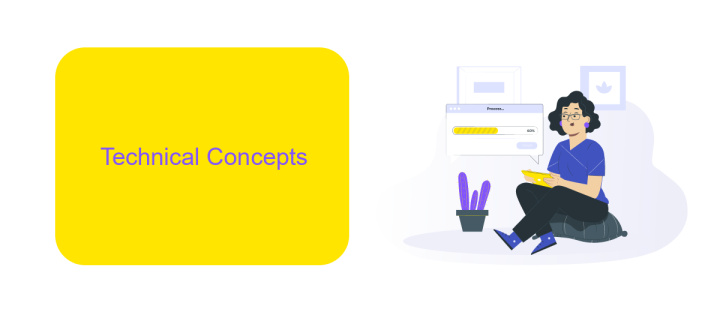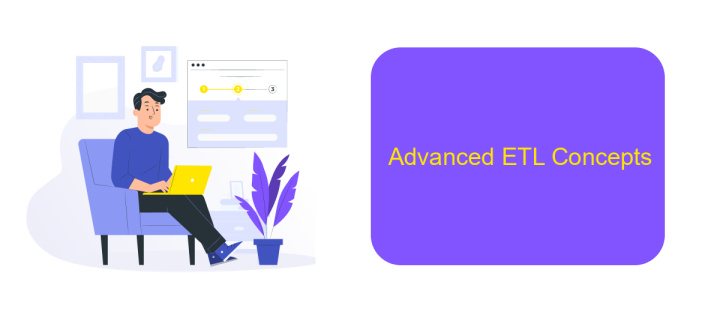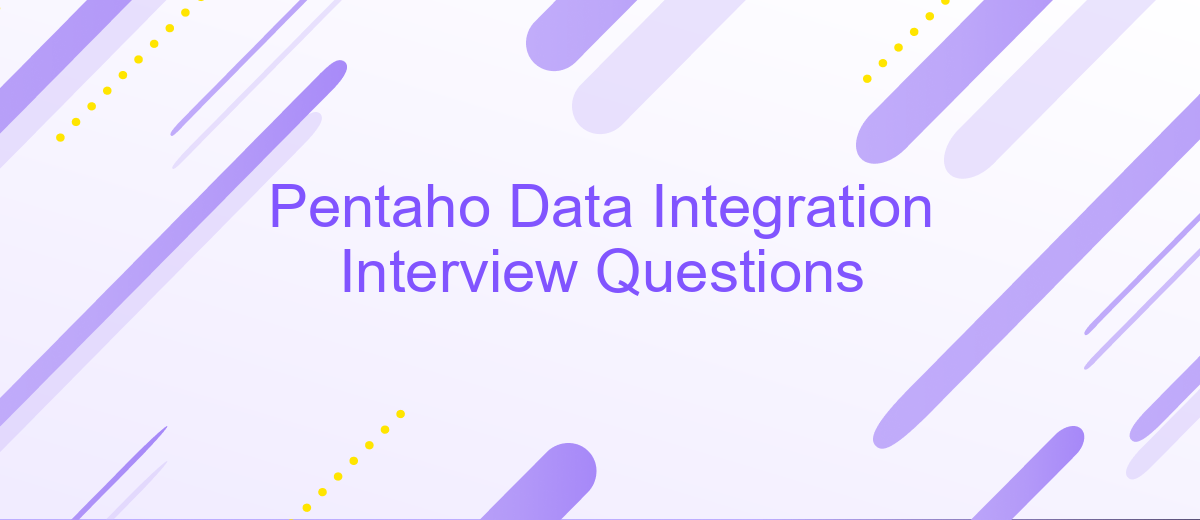Pentaho Data Integration Interview Questions
Pentaho Data Integration (PDI), also known as Kettle, is a powerful open-source tool for data integration and transformation. Whether you're a seasoned data engineer or a newcomer to the field, preparing for an interview can be challenging. This article compiles a list of essential Pentaho Data Integration interview questions to help you demonstrate your expertise and secure your next role.
Introduction
Pentaho Data Integration (PDI), also known as Kettle, is a powerful, open-source tool designed for data integration, transformation, and analysis. It provides a comprehensive suite of features that facilitate the extraction, transformation, and loading (ETL) of data from various sources into a centralized data warehouse. Whether you are a data engineer, analyst, or developer, mastering PDI can significantly enhance your ability to manage and analyze large datasets efficiently.
- Understanding ETL Processes: Grasp the basics of ETL and how PDI streamlines these processes.
- Data Transformation Techniques: Learn various methods to clean, transform, and enrich data.
- Connecting Data Sources: Explore how to integrate multiple data sources seamlessly.
- Job and Transformation Design: Discover best practices for designing robust ETL workflows.
- Performance Tuning: Tips for optimizing the performance of your data integration tasks.
For those looking to automate and streamline their data integration processes, services like ApiX-Drive can be invaluable. ApiX-Drive offers a user-friendly platform that simplifies the integration of various applications and services, ensuring seamless data flow and real-time synchronization. By leveraging such tools, professionals can focus more on data analysis and decision-making rather than the complexities of data integration.
Technical Concepts

Pentaho Data Integration (PDI), also known as Kettle, is a powerful tool for data extraction, transformation, and loading (ETL). It provides a graphical interface for designing data workflows and transformations, making it accessible for users with varying levels of technical expertise. PDI supports numerous data sources, including relational databases, flat files, and big data stores, allowing for seamless data integration and management. Key components of PDI include transformations, jobs, and steps, which work together to process and move data efficiently.
For those looking to enhance their integration capabilities, services like ApiX-Drive can be extremely beneficial. ApiX-Drive offers a user-friendly platform for connecting various applications and automating data workflows without the need for extensive coding. This service can complement PDI by providing additional integration options and simplifying the process of connecting disparate systems. By leveraging both PDI and ApiX-Drive, organizations can achieve more robust and flexible data integration solutions, ensuring that their data workflows are both efficient and scalable.
Kettle Architecture

Kettle, the core of Pentaho Data Integration (PDI), is a powerful tool designed for data extraction, transformation, and loading (ETL) processes. It is built on a robust architecture that ensures high performance and scalability, making it suitable for both small and large-scale data integration tasks.
- Repository: Central storage for jobs and transformations, which can be database-based or file-based.
- Transformation: A set of steps to process and manipulate data, such as filtering, sorting, and aggregating.
- Job: A workflow that orchestrates the execution of multiple transformations and other tasks, such as file transfers or shell commands.
- Carte Server: A lightweight web server for remote execution and monitoring of jobs and transformations.
- Pan and Kitchen: Command-line tools for executing transformations (Pan) and jobs (Kitchen) without the need for a graphical interface.
By leveraging the Kettle architecture, organizations can achieve seamless data integration across various sources and destinations. For additional integration capabilities, services like ApiX-Drive can be utilized to automate data flows between applications, enhancing the overall efficiency and effectiveness of the ETL processes.
Advanced ETL Concepts

Advanced ETL concepts in Pentaho Data Integration (PDI) involve techniques and strategies to optimize and streamline data processing workflows. One such concept is the use of parallel processing, which allows multiple data streams to be processed simultaneously, significantly reducing the overall processing time.
Another crucial aspect is the implementation of error handling mechanisms. By incorporating robust error handling, you can ensure that your ETL processes are resilient and can recover from unexpected failures without losing data integrity. This includes setting up error logs, notifications, and retry mechanisms.
- Parallel processing for faster data throughput
- Robust error handling and recovery mechanisms
- Utilizing external services like ApiX-Drive for seamless integrations
Moreover, leveraging external integration services such as ApiX-Drive can greatly enhance the efficiency of your ETL processes. ApiX-Drive allows you to easily connect various data sources and applications, automating data transfer and synchronization. This not only saves time but also reduces the complexity of managing multiple data connections.


Project Experience and Troubleshooting
During my tenure as a data integration specialist, I have led multiple projects utilizing Pentaho Data Integration (PDI). One notable project involved integrating various data sources, including SQL databases, CRM systems, and cloud storage, into a unified data warehouse. By leveraging PDI's ETL capabilities, I streamlined data flow and ensured data consistency across all platforms. Additionally, I utilized ApiX-Drive to automate data transfers between disparate systems, significantly reducing manual intervention and errors.
Troubleshooting in PDI often involves identifying bottlenecks in data processing and resolving connectivity issues. In one instance, I encountered performance degradation due to inefficient transformations. By optimizing these transformations and implementing parallel processing, I improved the overall performance. Additionally, I resolved connectivity issues by configuring proper network settings and utilizing ApiX-Drive to monitor and manage data flow, ensuring seamless integration and real-time data updates. My proactive approach to troubleshooting ensures minimal downtime and optimal system performance.
FAQ
What is Pentaho Data Integration (PDI)?
What are the key components of PDI?
How does PDI handle error handling and logging?
What types of data sources can PDI connect to?
How can automation and integration be enhanced using services like ApiX-Drive?
Do you want to achieve your goals in business, career and life faster and better? Do it with ApiX-Drive – a tool that will remove a significant part of the routine from workflows and free up additional time to achieve your goals. Test the capabilities of Apix-Drive for free – see for yourself the effectiveness of the tool.

